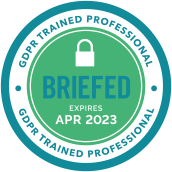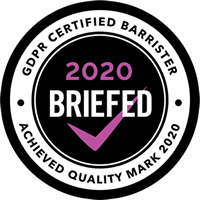![FAILURE TO PAY DIVIDENDS HELD TO BE UNFAIRLY PREJUDICIAL: ROUTLEDGE V SKERRITT [2019] EWHC 573 (CH)](https://erskinechambers.com/app/uploads/2018/03/London-1024x683.jpg)
COURT SANCTIONS STELLAR DIAMONDS TAKEOVER DESPITE LOW TURNOUT
30th April 2018
On 25 April 2018 Snowden J, sanctioned the Part 26 Companies Act 2006 (“CA 2006”) scheme of arrangement (“the Scheme”) by which Newfield Resources Limited (“Newfield”), an Australian company, acquired the entire issued and to be issued share captial of Stellar Diamonds Plc (“the Company”), an AIM listed diamond exploration company. The scheme provided for the holders of Ordinary Shares in the Company to receive 0.7622 for each Ordinary Share in the Company held at the Scheme Record Time (as defined in the Scheme).
Gowlings LLp acted for the Company. Andrew Thornton of Erskine Chambers acted as scheme counsel.
The most notable feature of the application was the low turnout at the shareholder court meeting. Section 899(1) CA 2006 requires shareholders to approve a proposed scheme by a majority in number representing 75% in value. A conventional turnout for a listed company scheme tends to be between 10 and 20% in number and 40 to 60% in value. In this case, although, of those shareholders who voted, 96.49% voted in favour holding 99.89% of the shares held, the turnout by number was only 5.48%. By value, the turnout was within normal boundaries at 59.84%.
Given the low turnout by number, the Company adduced evidence as to some of the factors that might have influenced turnout. In particular, the following factors were drawn to the attention of the Court:
(1) The Company had a long tail of small, predominantly retail, shareholders as a result of a previous reverse takeover. 332 shareholders held less than 6 shares and 808 shareholders held less than 1,000 shares each. The Scheme valued each share at 10 pence.
(2) A significant proportion of the Scheme Shareholders were based overseas (approximately 43%).
(3) Approximately 4% of the Scheme Shareholders were “returned mail holders” (shareholders to whom posting had previously failed).
(4) A small number of overseas shareholders did not receive the scheme document posted to them (although the Company’s service providers had sent out the documents by airmail, properly addressed and with sufficient postage paid);
(5) The articles of association of the Company adopted the widespread approach of providing that shareholders without a registered address in the UK, Channel Islands or Isle of Man were not entitled to notice of general meetings and so it was possible that overseas shareholders would not expect to receive notices from the Company and/or assume (contrary to the clear terms of the scheme document) that they were not permitted to vote; and
(6) A number of beneficial holders of hte Company’s shares had notified the Company that they had experienced difficulties in ensuring that their nominee vote their shares as instructed.
In light of that evidence, and given that there was no evidence that the Company had failed to take appropriate steps to notify shareholders of the Scheme (and had complied with the order made by ICC Judge Barber giving permission to convene the meeting), Snowden J. sanctioned the Scheme noting that it might be appropriate in some cases to consider giving a longer period than the usual 21 days’ notice. In particular, the judge referred to a situation where the postal system in a particular overseas jurisdiction might not function in a way that allowed members property to digest the scheme and exercise their voting rights.



